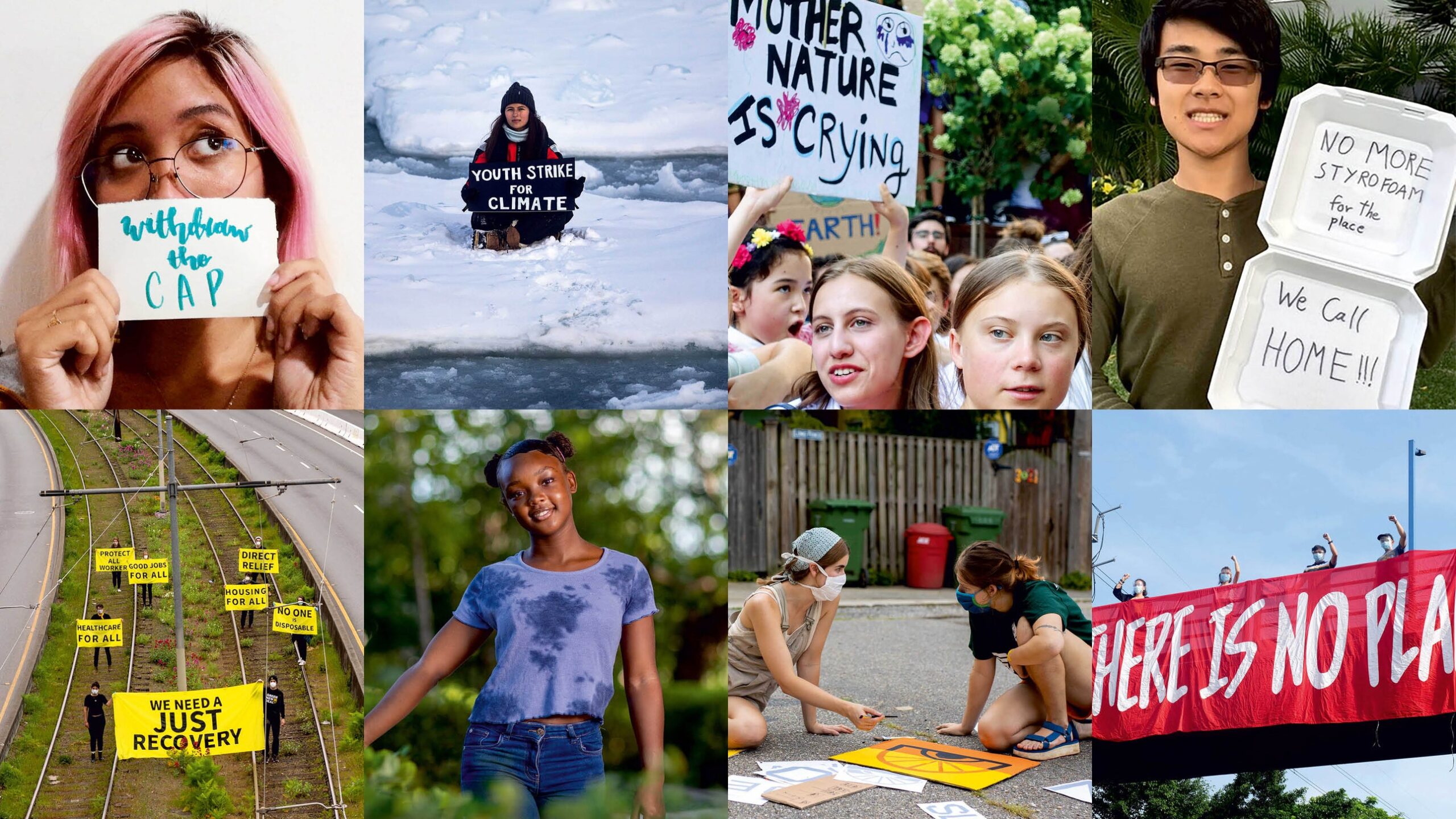Young Advocates Leading the Charge for Environmental Justice
Young advocates across the globe have united as a powerful force in the pursuit of environmental justice.
8 February 2021

‘My name is Greta Thunberg. I want you to panic.’ When the world’s most recognizable activist delivered this message to leaders at the United Nations and the European Parliament in 2019, she was merely 16 years old. Since then, climate justice has gained significant traction, with many of those championing positive action to protect our planet still in school. The increasingly pressing issue of climate change is complex. We must consider whether to encourage behavioral shifts among friends and family or demand more significant changes from major industries and governments. The answer? All of the above.
Fridays For Future, the school-strike movement initiated by Thunberg, now boasts nearly 14 million strikers in 7,500 cities across 212 countries. Numerous organizations are also stepping up, including the Sunrise Movement, Earth Guardians, and Zero Hour. These groups go beyond just mobilizing young individuals; they advocate for awareness of the UN’s Sustainable Development Goals and share critical information through social media. Their enthusiasm and determination resonate strongly, resulting in tangible outcomes. Common among these communities of change-makers is a shared vision for innovative ideas and global solutions.
Dyson Chee
In Honolulu, Bill 40 was enacted in 2019 to phase out disposable plastics on the island of O‘ahu, largely due to the determination of young citizens like Dyson Chee, who is now 18 and the founder of Project OCEAN Hawaii. Chee and his team began by circulating a petition to gather support. He recalls, ‘As a kid, I would spear fish with my family. However, as my love for the ocean blossomed, I began noting alarming issues, such as finding microplastics while searching for coral or fish. What initially seemed trivial evolved into a realization that aquatic life conditions were deteriorating. At 14, I contemplated the greater implications: If it’s this bad now, how much worse could it become?’ Chee engages older generations by relating climate issues to their concerns, such as fiscal matters or local environmental impacts. He believes this approach bridges the gap, helping individuals of all ages understand the interconnectedness of these critical issues.
Mitzi Jonelle Tan
From Manila, Mitzi Jonelle Tan amplifies the voices of Indigenous groups in the Philippines. ‘Defending the environment is a tradition for them,’ asserts the 23-year-old who organizes meetings for Youth Advocates for Climate Action Philippines. Tan has been passionate about global issues since early life. Meeting the Lumad people at 19 highlighted the importance of fostering a deep appreciation for nature. ‘They understand land as life, as their culture and identity intricately relate to it. Truly, why aren’t we all like that? Our existence is inseparable from the environment.’
Oluwaseyi Moejoh
The next generation of activists share a belief that climate change largely stems from the practices of wealthy corporations, while vulnerable populations in the Global South disproportionately suffer its impacts. Oluwaseyi Moejoh established U-Recycle Initiative, a youth-led social enterprise promoting a circular economy in Sub-Saharan Africa. The 19-year-old hosted a two-day Litterathon in October 2020, motivating over 95 young Africans from 18 cities across seven nations to collect waste using the interactive Litterati app, which engages participants as citizen scientists.
Mya-Rose Craig
British-Bangladeshi ornithologist Mya-Rose Craig, at 18, has been advocating for diversity in environmental sectors through her Birdgirl blog since 11 years old. As the founder of Black2Nature, she campaigns for greater representation of minority groups in environmental professions. Craig organizes experiences for underrepresented youth to engage with nature. Her mantra is direct: ‘Be the change you want to see, whether that involves spreading information, initiating petitions, or participating in demonstrations.’
Young individuals are vital in the quest for sustainability, declares Sayo Ayodele from the United Nations’ Race to Zero organization, which is driving initiatives aimed at decarbonizing the economy. ‘They are active on the streets demanding changes, while also inspiring transformation in their homes, schools, and communities. As they develop their careers, their influence on industry and policy becomes integral to enacting change where it matters most.’
Eyal Weintraub
Eyal Weintraub, 20, is another ardent advocate and co-founder of Jóvenes Por El Clima in Argentina. Engaged in debates about climate change, Weintraub brings fresh perspectives on tackling the crisis. He argues for a shift in focus from individual consumerism to collective responsibility, urging consumers to think critically about the environmental impacts of their purchases.
Siobhan Faith Bowens
Dedicated individuals like Siobhan Faith Bowens, a 15-year-old member of her school’s climate change group, illustrate the passion young people possess. She expressed, ‘I care deeply about our planet’s wonders, its mystery, and beauty.’ Bowens’ concerns about pollution and deforestation resonate broadly, exemplifying the passionate yet often voiceless youth dedicated to environmental action.
Bowens resonated with the sentiment that although climate change is a popular topic, many adults overlook its tangible impacts. One local business owner’s admission of never considering sustainability attests to the critical need for ongoing awareness and action.
Understanding the Carbon Cycle
All living organisms, from humans to trees, contain carbon, which perpetually shifts in form. Carbon is released or absorbed through biological processes and environmental interactions. While carbon is essential, its excessive emissions, particularly in greenhouse gas form, contribute to climate emergencies. To counteract this, we must increase carbon drawdown, where trees and plants absorb CO2, reinvigorating the Earth’s natural cycles.
Understanding the carbon cycle is crucial for fostering sustainable travel practices and combating climate change.




